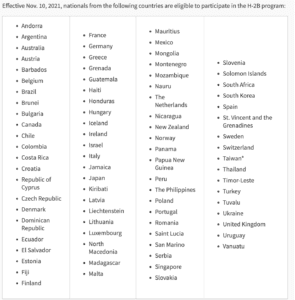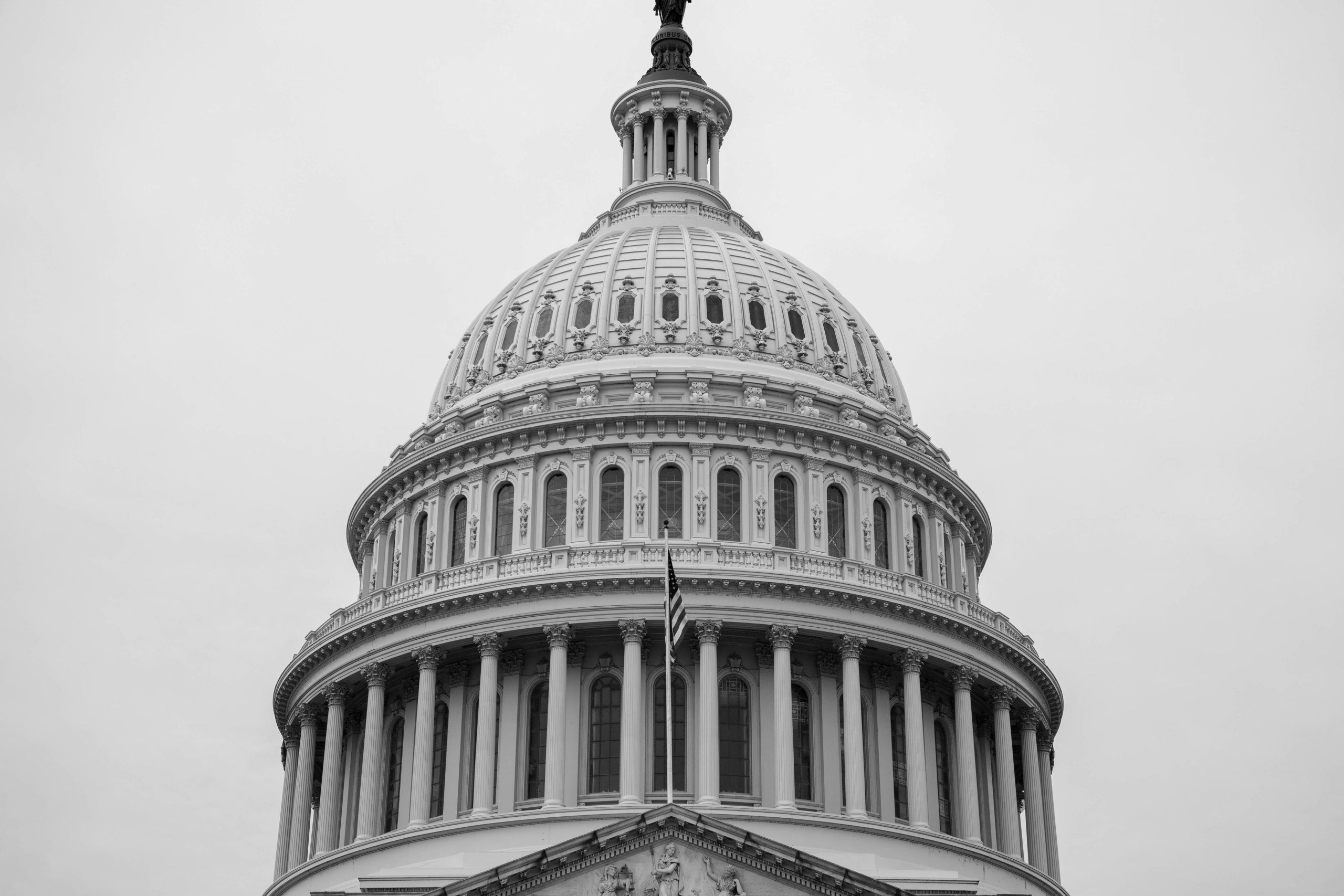Additional H-2B Visa Available for Second Half of 2022
Many business owners and employers in the U.S. will be happy to know that the Department of Homeland Security and the Department of Labor has made 35,000 additional H-2B seasonal foreign worker visas available for the second half of 2022. These are specifically for employed workers on or after April 1, 2022, through September 30, 2022.
These additional H-2B visas will help employers meet the demand for seasonal workers at this most critical time, when there is a serious labor shortage,” said Secretary Alejandro N. Mayorkas. “The visas are accompanied by significant worker protections and provide a safe and lawful pathway for individuals to come to the United States and earn wages in jobs that are not filled by American workers.
H-2 Visa Eligibility Requirements
Most foreign nationals in hospitality, construction, agriculture/landscaping, and other positions not requiring specialized skills on a seasonal basis. With labor shortages in many industries rampant, this will help compensate for the labor gap. Competition for these 35,000 supplemental visas is stiff, however.
According to Tim Hygh, executive director for the Mackinac Island Tourism Bureau in Michigan, “there are approximately 100,000 [Department of Labor]-certified requests fighting over these additional 35,000 supplemental visas, so while this is a much-needed step forward, there are still over 60,000 proven requests that will go unanswered.”
H-2B visas are only valid for a short period. After the season expires, the worker can extend it in one-year increments (up to three years max) or change it. If they change it, they must return to their home country for a minimum of three months. The employer cannot sponsor an H-2 worker for permanent residency.
The employer’s job position to qualify for an H-2B visa must meet the following criteria:
- Temporary/Seasonal
- Full-time
- Non-agricultural employment
Children under 21 years old and spouses of H-2 visa recipients can get H-4 visas. H-4 visas have the same validity period as the H-2 visa.
Where Did the Additional Visas Come From?
In 2021, President Biden removed the ban on guest-worker visas previously put in place by the Trump administration. Following the change, Biden added visas to the fiscal allocation.
DHS distributes the additional 35,000 additional H-2B visas as follows:
- 23,500 to returning workers who had H-2B visas before or had status during one of the past three years
- 11,500 for nationals of Honduras, El Salvador, Guatemala, and Haiti (regardless of if they are returning workers).
There is an annual cap of 66,000 visas. The semiannual cap of 33,000 visas was reached on February 25, 2022. Once the H-2B cap is reached, USCIS may only accept petitions for H-2B workers exempt from the H-2B cap.
Instructions to File for H-2 Visa
Employers interested in sponsoring foreign nationals on an H-2 visa must first test the U.S. market and provide a Labor Certification Application to the Department of Labor demonstrating that there are not enough domestic workers who are qualified, able, and willing to take the positions they are offering and that the wages they are offering the foreign workers do not negatively impact similarly employed workers in the U.S.
Employers must also make other recruitment efforts like placing a job ad in a relevant State Workforce Agency for at least fifteen calendar days. After receiving temporary labor certification, the petitioning employer must file Form I-129 with USCIS. Once the government approves the I-129, workers overseas must apply for the visa at a U.S. Embassy or Consulate near them. In situations where the H-2B visa is not required, workers can seek entry at a port of entry.
H-2B Eligible Countries
Foreign nationals from the following countries are eligible for the program:
If you find that you don’t meet the criteria for an H-2B visa, there are other options. Contact us to schedule a consultation and explore what other immigration options you may qualify for.






